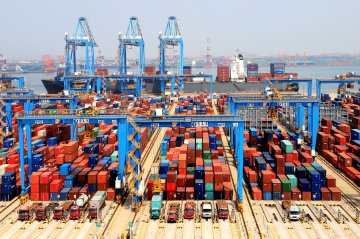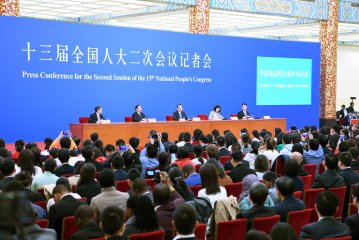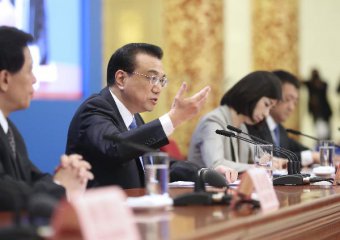
It’s springtime for China bulls.
Analysts from banks including HSBC Holdings Plc, Morgan Stanley and Goldman Sachs Group Inc. are increasingly confident that the world’s second-biggest economy is finding its feet after a rocky start to the year. Corporate tax cuts, an upswing in manufacturing and expected progress on a U.S. trade deal are among the factors buoying optimism.
It’s not just bank analysts. The International Monetary Fund on Tuesday raised its forecast for Chinese growth by 0.1 point to 6.3 percent this year even as it cut its outlook for global growth to the lowest since the financial crisis.
The better tone is being reflected in China’s markets. Stocks are up 31 percent from a January low and the yuan has strengthened 2.4 percent against the dollar.
China’s central role in global manufacturing and as a vital source of final demand are among reasons why a large pick-up in the March PMI is a key signal for global factories too, Bank of America Merrill Lynch economists led by Ethan Harris, head of global economics research wrote in a note dated April 5.
“Policy makers have responded to the U.S.-China trade war with a ’do-whatever-it-takes’ approach to supporting growth, taking on a wide array of easing measures. Financial conditions have started to improve and the large increase in the March manufacturing PMI might be the first indication that economic activity is bottoming out,” they wrote.
The likelihood for strong credit data, stabilizing trade volumes and a modest rebound in factory prices are reasons why Morgan Stanley strategists are increasingly upbeat.
“All these factors suggest to us that the prospects for the Chinese economy are bullish and we expect China risk assets to perform well on the back of this,” they wrote.
Citigroup Inc. metals analysts including Maximilian Layton wrote on April 7 that “market participants should ‘chase’ this year’s rally” as data are set to improve.
HSBC economists Qu Hongbin and Julia Wang estimate that tax reductions announced last month are equivalent to over 2 percent of projected 2019 gross domestic product, making them the biggest in a decade. Those cuts and other measures will trigger a self-sustained recovery, they wrote in a note dated April 8.
On the property sector, high-frequency data on land transactions and secondary market prices indicate that sentiment has improved since March, helped by healthy inventories and expectations for policy easing, according to analysis by Goldman Sachs.
“With activity growth likely reassuring in the first quarter of the year, the government may feel less of an urge to ease property policies further in the near term,” Goldman’s economists wrote in a note.
Still, the economy isn’t quite yet on an even keel. While demand-side indicators such as retail sales and investment are holding up, supply-side gauges such as production and employment were weak in the first two months of the year, according to Bloomberg Economics.
“It’s hard to say with precision when the economy may start to bottom out," they wrote.
Source: Bloomberg
























Latest comments